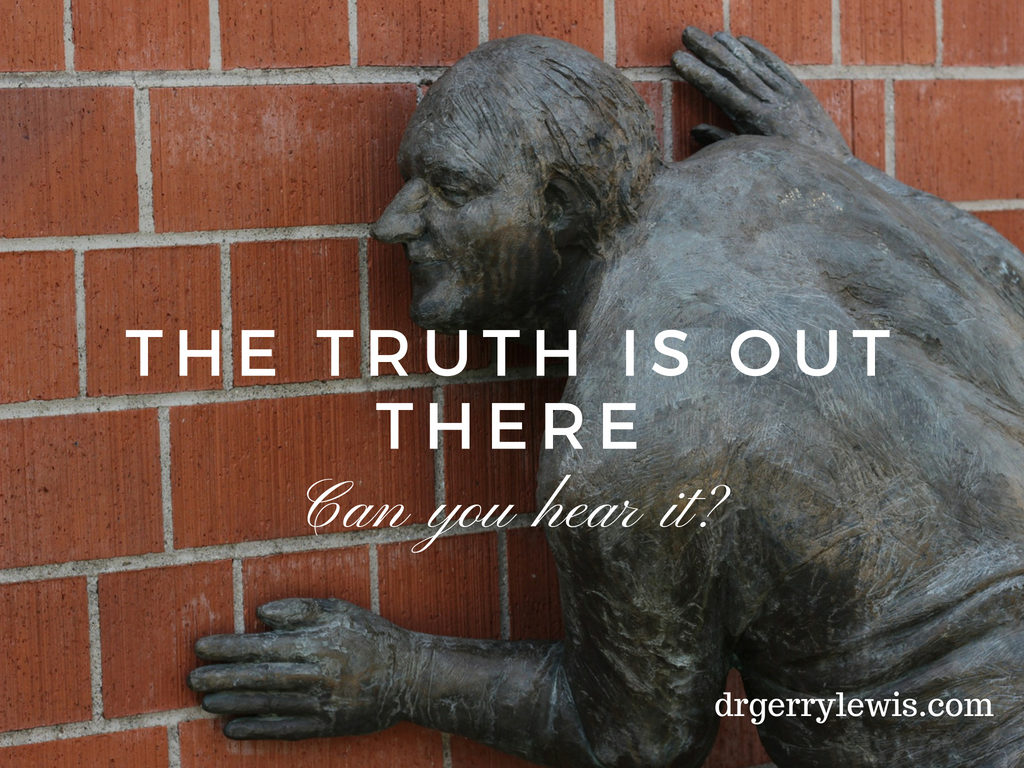It’s a noisy world out there!
Well, thanks for that, Dr. Obvious!
Ok, maybe it wasn’t particularly helpful to simply state that the world has become a noisy place. So, maybe I’ll go a little deeper and ask, “How do we handle the noise?”
Maybe we should first define “noise.” Certainly, there are literal noises—vibrations that create audible sound waves that can be measured in decibels (I’m pretending that I know what I’m talking about). Our mechanized, motorized, and mobile cultures generate a lot of those.
And of course, there is music. And hip-hop. (Sorry, hip-hop fans. I couldn’t resist).
None of those is the subject of my ponderings today. The noisy world I’m talking about is the noise of opinion, the “volume” at which it is shared, the competition for attention, and the increased vitriol that noise-makers have toward one another.
What seems to have been lost in all of this noise is the ability to listen and to dialogue with respect and open-heartedness.
Instead of listening to others so that we might understand their frame of reference, we are already preparing our next point to make. And we consider ourselves magnanimous if we actually let them finish a sentence without interrupting them.
Of course, if they are wrong—meaning that they disagree with us—then we feel compelled to interrupt them and set them straight. If they refuse to give us our turn, then we turn up the volume and try to either drown them out or intimidate them into relenting. And if they absolutely refuse to see the light and come around to our—the correct—way of thinking, then we write them off and break whatever relationship we might have had. After all, principles are more important than people.
Does that sound a little extreme or cynical on my part? Maybe we wouldn’t really do that in person, but online …?
I’m sure I’ve mentioned this before because it was one of the wisest statements I’ve ever heard. My father-in-law (who is one of the wisest men I’ve ever known) once said, “I’ve never learned much with my mouth open.”
Stephen Covey, in his book, The Seven Habits of Highly Effective People, said, “Seek first to understand; then to be understood.”
James, the half-brother of the Lord Jesus Christ, said, “My dear brothers and sisters, take note of this: Everyone should be quick to listen, slow to speak and slow to become angry, because human anger does not produce the righteousness that God desires.” (James 1:19-20)
Quick to listen. Slow to speak. Slow to become angry.
Those words of wisdom have led me to state the fourth of my Life Core Values this way: “Listen intently because sacred truth is often found in unexpected way stations.”
Listen intently because sacred truth is often found in unexpected way stations. Click To Tweet
Jesus said, “I am the Way, the Truth, and the Life.“ (John 14:6, emphasis mine). If He is The Truth—truth personified—then all truth finds its source in Him. Regardless of whose mouth speaks it.
If Jesus is The Truth—truth personified—then all truth finds its source in Him. Regardless of whose mouth speaks it. Click To Tweet
Please note that I didn’t say all truth claims are equal. I said, if it’s true, it is His truth and is, therefore, sacred.
Life matters—the whole incredible, messy, noisy journey. If we will slow down and listen, we may be surprised at how Truth will show up.




